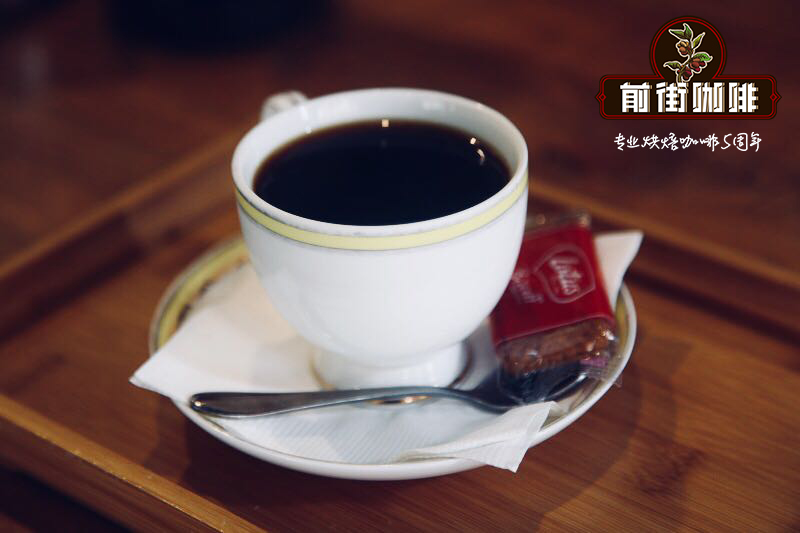Introduction to the roasting method of Tanzanian coffee with grade flavor

Professional coffee knowledge exchange More coffee bean information Please pay attention to coffee workshop (Weixin Official Accounts cafe_style)
Tanzanian coffee beans are of exceptional quality. Most coffee is grown on small-scale farms, producing coffee mainly for export. Although the aroma of coffee is not much different from Kenya, a neighboring coffee producing country, the production technology or green bean processing equipment is far behind Kenya. Tan produced in the vicinity of Mount Kilimanjaro, 1800 meters above sea level mountain area is the most suitable area for coffee cultivation, thanks to the volcanic ash cover and snow irrigation, giving the coffee here a strong texture and soft acidity. It exudes delicate aromas, with wine and fruit aromas, which make people taste endless.
Characteristics of Tanzanian Coffee:
Flavor: rich and refreshing, acidity lower than Kenya coffee, pure flavor, aroma overflowing
Recommended baking method: medium baking
After drinking Tanzanian coffee, you will always feel a soft and mellow earthy taste at the corner of your mouth. Coffee gourmets often use words such as "wild" or "wild" to describe it. It can be said that pure Tanzanian coffee is "the most African coffee".
Usually its acidity is mild, after eating evenly stimulate the middle and both sides of the tongue taste buds, feel a bit like tomato or soda acid. After moderate or moderate baking, there is a strong aroma, and then ground into fine powder, add boiling water on a pot, call friends around to taste, suddenly feel fragrant overflowing, mouth fluid.
Tanzania's coffee exports occupy an important position in the overall national economy. In the past, Tanzania's coffee industry has been dominated by plantation cultivation, but now more than 85% is cultivated by smallholders. Many small farmers form cooperative organizations, the most important of which is the Kilimanjaro Cooperative Union (KNCU). Tanzanian coffee is sold at auction by the Tanzanian Coffee Marketing Board (TCMB) to private exporters. In the 1980s, most coffee sales in Tanzania shifted from auctions to direct sales to the Tanzania Coffee Marketing Board.
This has changed, and the coffee industry is being reformed to allow individuals or groups to buy coffee in the future, and coffee will be graded in different ways to attract buyers from Germany, Finland, the Netherlands, Belgium and Japan. The best performers in Tanzania coffee are mainly produced in Domikri Mangaro volcano at an altitude of 1300
Mount Kilimanjaro。Tanzanian coffee beans from this region are washed and
It has an acid texture similar to Kenya coffee, like red wine: soft, pleasant understated acidity, round taste
And a medium consistency.
Fine Tanzanian coffee tastes similar in texture to Kenyan coffee, but overall it is not as good.
In addition to the lingering finish, fruit and fruit acids are also combined, acidity is weaker than Kenya coffee, is relatively mild
Coffee lovers of African beans should not miss it.
Origin Description:
Kilimanjaro, the highest mountain on the African continent, Mt. Gilimanjaro.
Mountain ranges of 3,000 to 6,000 feet are the best places to grow coffee. Rich and sweet.
Balanced acidity, intense aroma.
Tanzania, located in Africa, coffee exports occupy an important position in the entire national economy. by and large
Tanzanian coffee beans are of exceptional quality. Important production areas are in the mountains near Kenya in the north, for example
High quality Tanzania produced in Moshi district near Kilimanjaro mountain
Chagga AA coffee is known for its full grain, aromatic quality. tanzan
Kenya coffee definitely has the strength to compare with neighboring Kenya, but the quality of coffee in the country is not strictly controlled.
Sloppiness in the process often spoils the quality of the coffee (e.g. delivery). Good quality Tanzanian coffee is divided into
AA and A grade, generally round beans have the highest price.
Important Notice :
前街咖啡 FrontStreet Coffee has moved to new addredd:
FrontStreet Coffee Address: 315,Donghua East Road,GuangZhou
Tel:020 38364473
- Prev

Characteristics of regional flavor of Tanzanian coffee guide for grading of Tanzanian coffee
Professional coffee knowledge exchange more coffee bean information please follow the coffee workshop (Wechat official account cafe_style) Tanzania coffee's sweet citrus fruit aroma and taste make you feel the flavor of orange and grapefruit. In fact, Tanzanian coffee is very similar to Kenyan coffee. The two kinds of coffee also exude African acidity and citrus aroma. And Tanzanian coffee is even more unique.
- Next

Why is Tanzanian coffee a boutique coffee producing area as famous as Blue Mountain Coffee?
Professional coffee knowledge exchange more coffee bean information please follow the coffee workshop (Wechat official account cafe_style) and Blue Mountain Coffee famous boutique Tanzanian coffee Tanzania Coffee coffee growing area: African coffee type: medium concentration coffee description: refreshing acidity and medium mellow complement blackcurrant and sweet orange flavor processing method: washing method
Related
- Detailed explanation of Jadeite planting Land in Panamanian Jadeite Manor introduction to the grading system of Jadeite competitive bidding, Red bid, Green bid and Rose Summer
- Story of Coffee planting in Brenka region of Costa Rica Stonehenge Manor anaerobic heavy honey treatment of flavor mouth
- What's on the barrel of Blue Mountain Coffee beans?
- Can American coffee also pull flowers? How to use hot American style to pull out a good-looking pattern?
- Can you make a cold extract with coffee beans? What is the right proportion for cold-extracted coffee formula?
- Indonesian PWN Gold Mandrine Coffee Origin Features Flavor How to Chong? Mandolin coffee is American.
- A brief introduction to the flavor characteristics of Brazilian yellow bourbon coffee beans
- What is the effect of different water quality on the flavor of cold-extracted coffee? What kind of water is best for brewing coffee?
- Why do you think of Rose Summer whenever you mention Panamanian coffee?
- Introduction to the characteristics of authentic blue mountain coffee bean producing areas? What is the CIB Coffee Authority in Jamaica?

